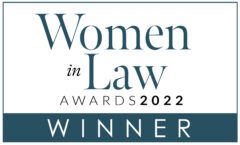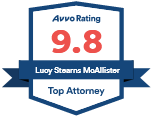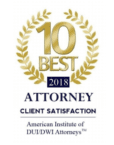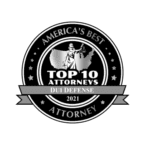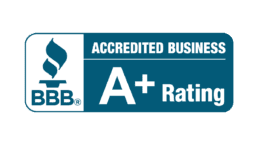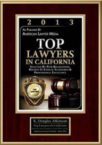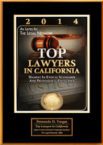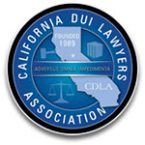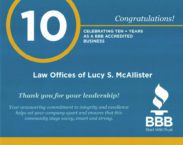A charge of “unprofessional conduct” can be made by a California licensing authority with broad discretion. Criminal convictions (felonies or a series of misdemeanors) for actions that are deemed “substantially related” to the qualifications, functions, or duties of a professionals are often considered “unprofessional conduct”.
In addition, each profession’s licensing authority has their own definitions about what constitutes unprofessional conduct and in many cases the statutes are not black and white about the ability of a licensing authority to levy this charge on a professional. And many specific licensing authorities have added additional regulations their specific definitions of what constitutes “unprofessional behavior”.
For example, the California Board of Psychology defines this for California psychotherapists:
I. General negligence, incompetence, or impairment while providing therapy
- Gross negligence or incompetence in your performance of therapy. This can include “repeated acts of negligence.
- Intentionally or recklessly causing physical or emotional harm to any client.
- Performing, or holding yourself out as being able to perform, professional services beyond the scope of your competence, as established by your education, training, and experience.
- Using drugs or alcohol in a way that impairs your performance of therapy.
- Using drugs, or offering to use drugs, in the course of performing therapy.
- Failing to keep records consistent with sound clinical judgment, professional standards, and the nature of services being rendered.
II. Sexual misconduct
- Engaging in sexual relations with a client, or a former client within two years following termination of therapy. Sexual contact with a client—or with a former client, when therapy was terminated in order to have sex—is also a crime in California.
- Soliciting sexual relations with a client.
- Committing an act of sexual abuse or sexual misconduct with a client. This would include, for example, a sexual assault such as fondling the client without his or her consent, as well as doing so with the client’s consent.
- Committing an act punishable as a sex crime, if that act or solicitation is “substantially related” to the qualifications, functions, or duties of a therapist. Criminal conviction is not required.
- Engaging in an act of sexual misconduct or abuse with a minor, at any time. Criminal conviction is not required. Here again, the minimum penalty is denial or revocation of license or registration. You will not be licensed in California.
- Failing to provide the brochure titled “Professional Therapy Never Includes Sex” to a client who tells you they had sexual contact with a previous psychotherapist.
III. Acts outside of therapy context
- Conviction of a crime “substantially related” to the qualifications, functions, or duties of a therapist.
- Using drugs or alcohol in a way that endangers or injures yourself, any other person, or the public.
- Committing any dishonest, corrupt, or fraudulent act “substantially related” to the qualifications, functions, or duties of a therapist.
IV. Supervision-related violations
- Allowing any trainee, intern, or associate to perform any professional service beyond the scope of their registration.
- Allowing a trainee, intern, or associate under your supervision to perform, or to hold himself or herself out as competent to perform, professional services beyond their level of education, training, or experience.
- Any conduct in your supervision of a trainee, intern, or associate that violates a statute or board regulation governing the profession.
These “unprofessional conduct” licensing infractions are in addition to others specific to failing to comply with current board licensing rules and requirements, failing to comply with mandatory Board notifications and disclosures, violations of specific rules and regulations of the profession and obtaining a license via fraud etc.
If you have been charged with “unprofessional conduct” by your licensing authority, you need to immediately retain the services of a qualified legal team, one with both licensing and criminal law experience. A seasoned legal team with this background in hybrid licensing-criminal case law and defense will be most able to effectively defend you so that you are able to continue to practice your profession.
Please call Lucy McAllister toll free at (877) 280-9944 to schedule an initial consultation.




